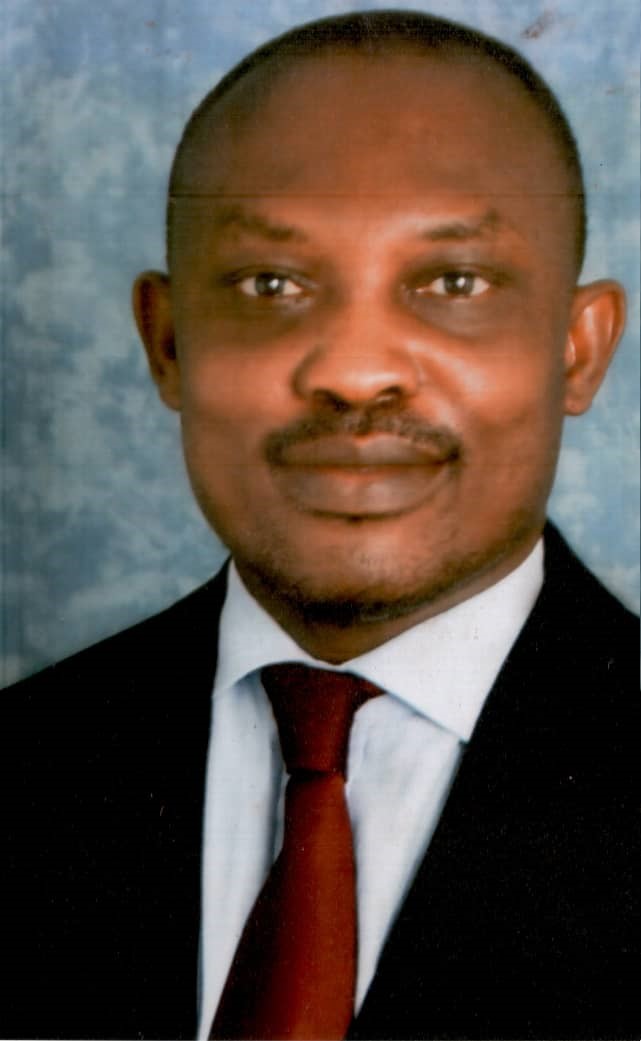…societal bane at all times
If nothing else, the classic western education can boast of its contribution to man’s existence as predicated on his thoughts and not his limbs or material appearance. For a person to generate, analyse and share his thoughts is fundamental in proving his existence more his ability to occupy a space and move around. It’s for this singular reason that the immediate past Chief Justice, Sophia Akuffo, deserves tons of commendation for daring to speak up at a time she chose to exercise her inalienable rights – notwithstanding the fact she benefitted greatly from ex-gratia, that which has become controversial, eliciting public outcry for its cancellation in recent times. Yes! Her Ladyship retired on her salary with all the perquisites. Others are on a penury sum of five hundred cedis with all sorts of old-age ailments to deal. Whether there is basis for this line to be drawn or not is among the issues this article seeks to highlight.
Oftentimes, a bad system doesn’t appear to be wrong to those who benefit from it. They usually do everything to defend it to the detriment of the larger society (attributed to Alibaba and Rita Dominic).
Societal ills will continue to thrive as long as seemingly good people do nothing or say nothing about the ills and woes of larger society for the general good. The culpability of many a people in this regard is either they look on when the evil is perpetuated, literally turning a blind eye or deliberately looking the other way, for the wrong to be continued – either as a result of mere remote association or by having direct vested interest.
In his book, The Happiest Man on Earth – The beautiful life of an Auschwitz, Eddie Jaku had this to say: “If enough people had stood up then come on Kristallnacht and said, ‘enough, what are you doing? What is wrong with you?’ then the course of history would have been different; but they did not. They were scared, they were weak, and their weakness allowed them to be manipulated into hatred”. Instead of waiting only to exhibit negative emotions and exert similar energies, the masses will have to be interested in the affairs of our beloved country and live up to their civic responsibilities.
De jure inequalities and/or de facto iniquities
The widening pay-gap between Article 71 office-holders and rank and file workers continues to attract much attention, and therefore needs to be addressed properly to calm down incessant turmoil on the labour front. Cutting down on expenditure would not necessarily in itself lead to income redistribution in the larger context per-se, but could serve as a very good gesture as an attempt to bridge the gap.
In the corporate world, the gap has become a systemic problem. Big company CEOs averaged 100 times more compensation than their typical workers. These gaps rapidly expand as wages stagnate for most workers unjustifiably, while executive pay continue to explode. The gap is normally explained away with power and their functionality. But most invariably, skyrocketing executive pay levels have nothing to do with improved managerial performance. Instead, these massive paychecks reflect a rigged system that channels resources to top of the corporate ladder while those on lower rungs face the greatest risks.
Let us for a moment consider the retirement package for former President Uhuru Kenyatta of Kenya, as sourced from The Presidential Retirement Benefits Act/SRC Gazette notice on Remuneration and Benefits for State Officers – July 31, 2022.: (All in KSH)
● Total gratuity allocation 72million (Increased to 79.2m)
● Lump-sum pension – 34.7m
● Monthly pension – 1,115,000
● House Allowance per month – 332,063
● Utilities – 300,000
● Fuel Allowance per month – 216,563
● Entertainment Allowance – 216,563
Other Benefits:
• 4 Cars (including 2 limousines – replaceable every 4 years)
• 4 Messengers
• 4 Drivers and bodyguards
• 4 Secretaries
• 2 personal Secretaries
• Fully-furnished offices
• Full medical cover
Badly-skewed distribution of global wealth and its effects on general wealth and growth
The Global Wealth report by Credit Suisse (CS) consistently highlights financial inequality across the world, and says that nearly 90% of all global wealth is owned by one to three percent of the global population. The rich continue to get richer while the poor get poorer. Meanwhile, it’s the income shares of the poor and middle-class which are the main engines of growth. If the income share of the top 20 percent (I mean the affluent) increases, then GDP growth actually declines over the medium-term. This suggests that the benefits do not ‘trickle down’.
In contrast, an increase in the income share of the majority bottom poor is associated with higher GDP growth. What all these facts mean is that the poor and middle-class matter most for growth via a number of interrelated economic, social, technological and political channels. Governments therefore ought to fashion-out deliberate policies for income redistribution.
At a microeconomic level, for instance, inequality increases ill-health and health-spending. This invariably trickles down to reduce educational performance of the poor, and unavoidably reduces the productive potential of the majority who constitute the workforce.
At a macroeconomic level, inequality can be a brake on growth and can lead to economic instability. One mechanism by which this happens is that the rich arguably consume a smaller proportion of their income than the poor. They save money which people on lower incomes would spend. This leads to a reduction in aggregate demand, which in turn leads to unemployment.
From inequality and vulnerability to prosperity for all
Ghana until recently was a beacon of hope in attempts at reducing endemic levels of poverty. The fact still remains that the poor’s wealth is unfortunately growing at a much slower pace, as they remain rooted in the poverty genre. Indeed, the gap between the richest minority of 3 percent and poorest majority of 97 percent has become wider, and it is evident that the yawning economic disparity is going to widen even further. Unless something deliberate is done, 90 percent of people in the world in general will be pushed further into the clutches of poverty. So says a recent research by Credit Suisse.
The fact that inequalities remain in the world is a clear sign that the benefits of economic growth have not reached the teeming poor. Although reports on Distressed Communities Index released recently by the Economic Innovation Group gives clear indication that where one finds him/herself contributes greatly, there cannot be any equivocation that deliberate interventions are required in attempts at bridging the gap – particularly as Credit Suisse’s Global Wealth Data book warns that economic development will rather fast-push the world into the grip of inequality.
The challenges being presented by Ghana’s economic crisis require a united and vigorous response, in a manner that can generate the needed kinds of growth opportunities for all. It is only such concerted efforts that can lead to betterment of the greater majority of our people; which will ensure a haven of peace and security for exponential growth and development. For emphasis, it is crucial that our collective opportunities are shared equitably.
Historical antecedents and the push toward a semblance of equality
There can’t be equality under any circumstances: This is the more reason why Voltaire seems to rubbish Jefferson by saying, “They who say all men are equal speak an undoubted truth, if they mean that all have an equal right to liberty, to their property, and to their protection of the laws. But they are mistaken if they think men are equal in their station and employments, since they are not so by their talents”.
Mind you, the famous American Declaration of Independence was largely written by Thomas Jefferson – who owned hundreds of enslaved humans as his property. However, he ironically famously stated that: “We hold these truths to be self-evident, that all men are created equal; that they are endowed by their Creator with certain unalienable rights; that among these are Life, Liberty and the pursuit of Happiness”.
Let’s also not forget that the French Revolution came with the phrase liberté, égalité, fraternité (liberty, equality, fraternity).
What this phrase meant to architects of the revolution was an insistence on a society in which all members are free and equal. I however find it ludicrous that the revolution was founded on these lofty ideals and France continues to have stranglehold on parts of Africa economically. It is as if one could call for freedom and equality without economic independence. This is better amplified with a quote by Amiel – “Liberty, equality – bad principles! The only true principle for humanity is justice; and justice to the feeble is protection and kindness”.
Should be more about equity and not equality
Much as there is a surging call for egalitarianism, it should not be lost on such proponents that it’s an undeniable fact people are classified according to skills, knowledge, ability, economic power, social status or other factors. Eugene Edwards puts it better as – “If by saying that all men are born free and equal means that they are all equally born free and equal it is true, but true in no other sense; because birth, talent, labour, virtue and providence are forever making differences”.
We have to strive toward attaining the lofty ideals of egalitarianism, however much of a mirage they appear to be as we collectively approach and near same
The chase should be unrelenting: imagine a retiree having to die prematurely because s/he could not pay those bills – not because s/he was lazy but because of the greed, selfishness of the elite/patriarchy in the winner-takes-all caveman system.
Who made it such that some get paid in millions and others are paid under 25 thousand a year in the same company? And all these are happening on a planet that came full of free air, water and fire; where so-called Christians dominate!
The whole world order undoubtedly requires change, because it’s totally unacceptable for 1-3% of the world’s wealthiest to have and control 90% of the entire World wealth while 97% of the poor control just 3% of its resources. That is definitely a recipe for anarchy and general insecurity, and therefore calls for change – but in what fashion?
Conclusion
The present economic situation, though dire, provides Ghana with the opportunity of forging a revitalised covenant for development to address well-known vulnerabilities and inequalities.
Elsewhere, particularly in the Scandinavian countries, true leaders armed with this knowledge are not selfish or motivated by greed and avarice. They are rather altruistic, knowing that wealth concentrations create perpetually oppressed minorities – making it possible for the disadvantaged populations to be exploited; all hindering economic growth and leading to numerous social problems. They know – and their call is to solve these very problems in their societies and not aggravate same so as to perpetually take advantage of the poor.










